We are all trying to figure this out, aren’t we? It’s not easy to live in Stage 1 or 2 of re-opening in the midst a pandemic. How do we talk to others who make such different choices around social distancing? I thought I’d put forward a COVID-19 Communication Coping Kit.
None of us have been here before. We don’t know how to talk to others about all the different ways we navigate our world these days–let’s start talking about. it.
For the third day in a row in Manitoba, we have had no new diagnosed cases of COVID-19. That’s good.
The virus spreads asymptomatically and there is no vaccine. That’s bad.
Stores are open and people are working and getting paychecks. We can go to the dentist if we have a sore tooth and get our grey roots taken care of. That’s good. In fact, that’s excellent! 😉
Many parts of the world continue to have substantial numbers of new cases and worse, more fatalities. That’s not just bad, that’s utterly tragic.
I spent some time this morning talking with Nicole Dubé and Rahim Ladhani on CTV Morning Live in Winnipeg. I talked to them remotely on Skype from my upstairs office instead of their studio, because that’s how we roll these days…
I’m hearing and having a lot of hard conversations these days:
- How important are face masks? How disrespectful is it not to wear one?
- Can out of town family who come to visit an aged parent stay at your house? How do you tell them they aren’t welcome because of COVID-19?
- When can you hug your mother? At what point does the benefit outweigh the risk? When do you give in because she accepts the risk?
- Can a teen go over to sit in the backyard of a friend? What happens if they have to use the bathroom? Can this teen sit in the vehicle of a friend for a few minutes to get picked up to this backyard?
- Can I pass someone in the aisle of a grocery store? What do I do or say if I meet someone going the wrong way down the one way aisle of the grocery store?
- Is the responsible thing to go to a restaurant to support it and it’s staff? Or is it better to stay at home to avoid contact? Which is better? Huh?
- How close is too close? Is it OK to sit in the backyard with family who don’t live with you? Is it rude or kind to offer a glass of water?
- How do we deal with the pain of people who choose to not sit in the backyard with you because of COVID-19 even though they could?
- What do we do with that discomfort when we approach someone at a counter or store, and they instinctively back away to maintain physical distance?
- What do we do with the discomfort someone else feels when we ask them to step back, or use a Q tip on the debit machine?
These days, COVID-19 distress seems more about how to enforce social distancing at a time when some are:
- at one end of the spectrum, so extremely vigilant, they live in total lockdown mode, some because they are at high risk, and some because they are risk averse
- at the other end of the spectrum, following news feeds that say this whole virus thing is blown out of proportion and everything is ok and we should just get back to normal…
- and everywhere in between
A couple of months ago, I wrote a COVID-19 coping kit, which has been accessed by many.
Allow me to suggest a COVID-19 communication coping kit.
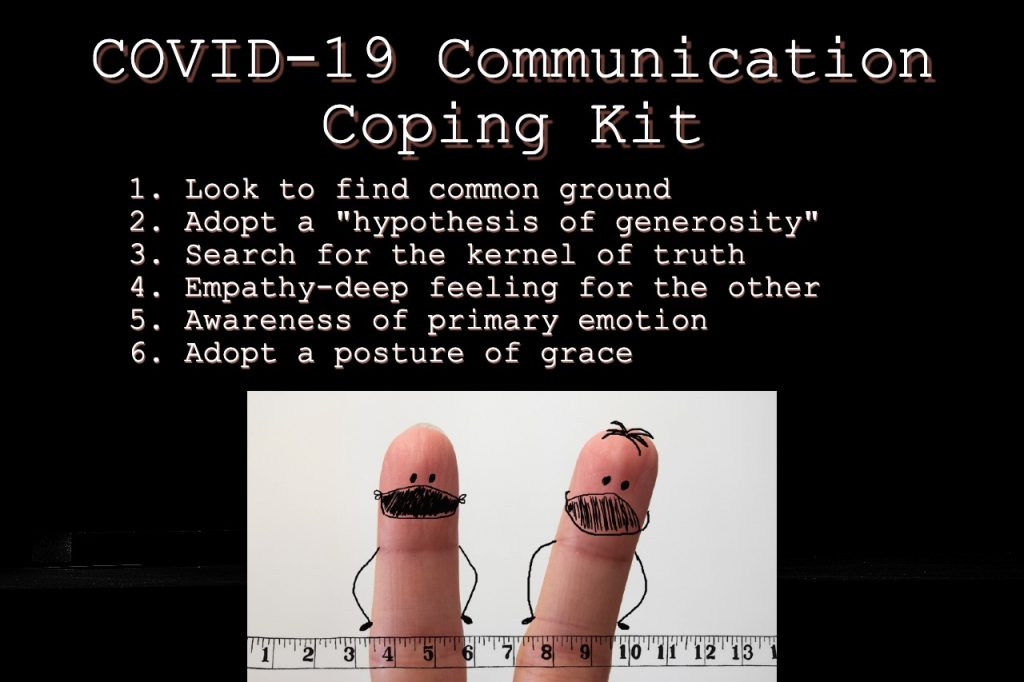
I invite you to consider it a tool to prepare yourself talk with others who are on a different point of the COVID-19 re-opening spectrum than you are:
1. Look to find common ground.
You may have to be intentional about this. With loved ones, you may go back to the love you have for each other, or for your parents or your kids or your siblings. With strangers, it may be about recognizing that we are all doing the best we can.
2. Hypothesis of generosity
I do believe, in my calmer and more rational moments, that we are all doing the best we can with what we’ve got. We are each listening to different new sources–or none at all, if that’s what we need. We have different history of traumas and tragedies, different fears now, different strengths, and different financial and life situations.
I do believe these conversations will be more effective if we are able to have a hypothesis of generosity–if we are able to give others the benefit of the doubt, even when we disagree.
3. Search for the kernel of truth in the other person’s judgement.
When someone accuses you of being too strict or too lax, can you find a lesson somewhere in their words for you to learn? Can you look beyond the style of the message to see if there might be some useful feedback?
4. Empathy.
Imagine being them in their shoes. When they disagree with you, how does this make sense from their perspective? If you don’t know, then can you be curious to explore this with them?
Again…look to the person’s feelings underpinning their position. Are they hopeful–you’ve been hopeful in your life, right? Are they cautious? Do you know caution and do you remember what that was like? Look to relate to them out of your awareness of their underlying feelings, even if their position is different.
5. Awareness of primary emotion.
If you are feeling some form of anger to another, or finding another’s anger be expressed to you, can you look beneath the anger which is often a secondary emotion to a primary emotion? We sometimes call this the “anger iceberg”–you see the tip of it, but have to trust that there is a more subtle and vulnerable emotion creating the anger that neither of you will be aware of without slowing down and holding space for something underneath.
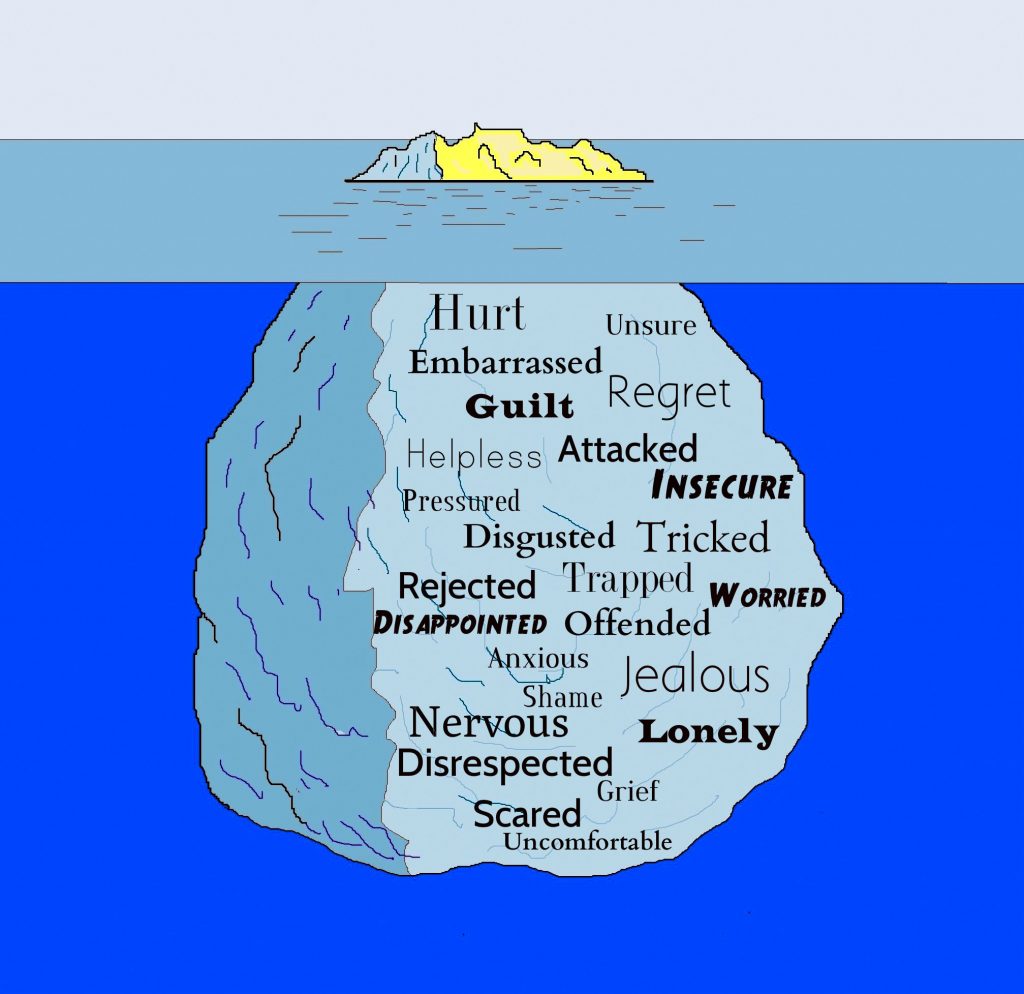
6. Posture of grace
As we relate to others who feel differently than we do about issues related to distancing and virus precautions, a posture of grace is essential. For today, let’s say grace is about finding a way to make it right, rather than being right.
When a potentially deadly virus is circulating, I’ll confess, I find extending grace frustrating. I like to push my views. A little insistence is more my style than mercy. When I feel passionately about the safety of me and my family, I can get obnoxious. I’m not proud of that. I’ve been working to be a giver of grace, even when–or maybe, especially when–the stakes are so high.
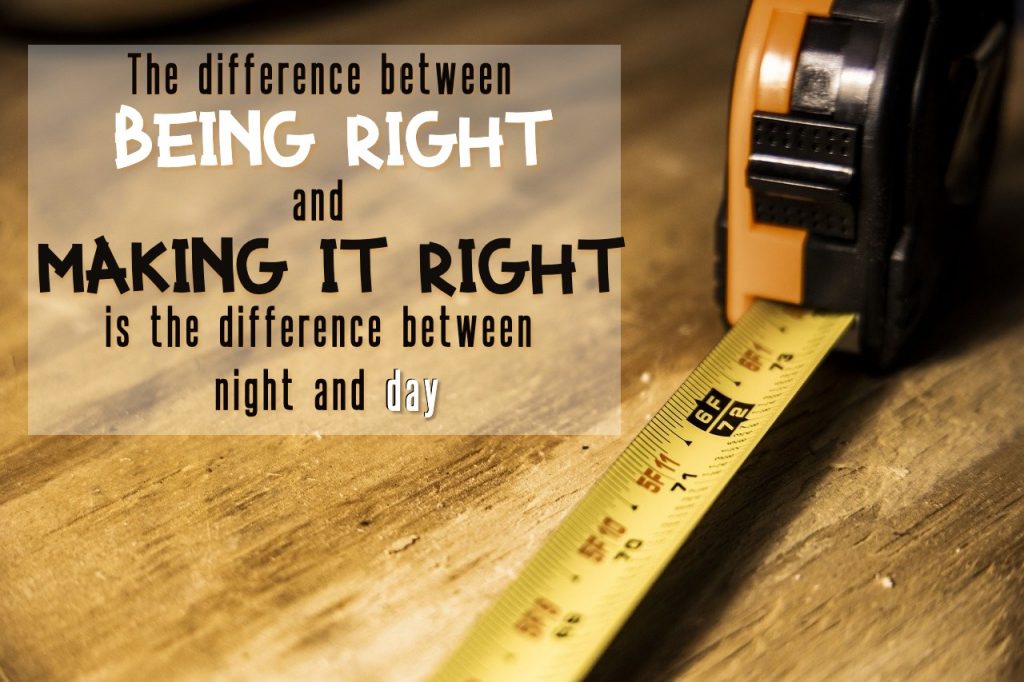
It looks like we will have months of tensions as we seek to balance:
- opening the economy with increased risk of viral transmission
- differences in individual differences in risk aversion and risk acceptance
- caution versus optimism
- the need to prevent the virus by painfully isolating with the need to engage in normal, healthy, life-giving visits and activity that we all crave as essential to our well-being
- individual autonomy with collective and social responsibility
It is exhausting figuring out how to have these conversations about pandemic living–I wish us all courage and strength as we navigate them in the days ahead.
It may be helpful for you to process your inner experience of these months of COVID-19 as a way to better know yourself. People who have worked to process their own experiences will better be able to ground themselves to have more productive and less defensive conversations with others. If you are looking for a tool to help you with this, consider my new book, out now and available at Amazon.ca and Kobo/Chapters.

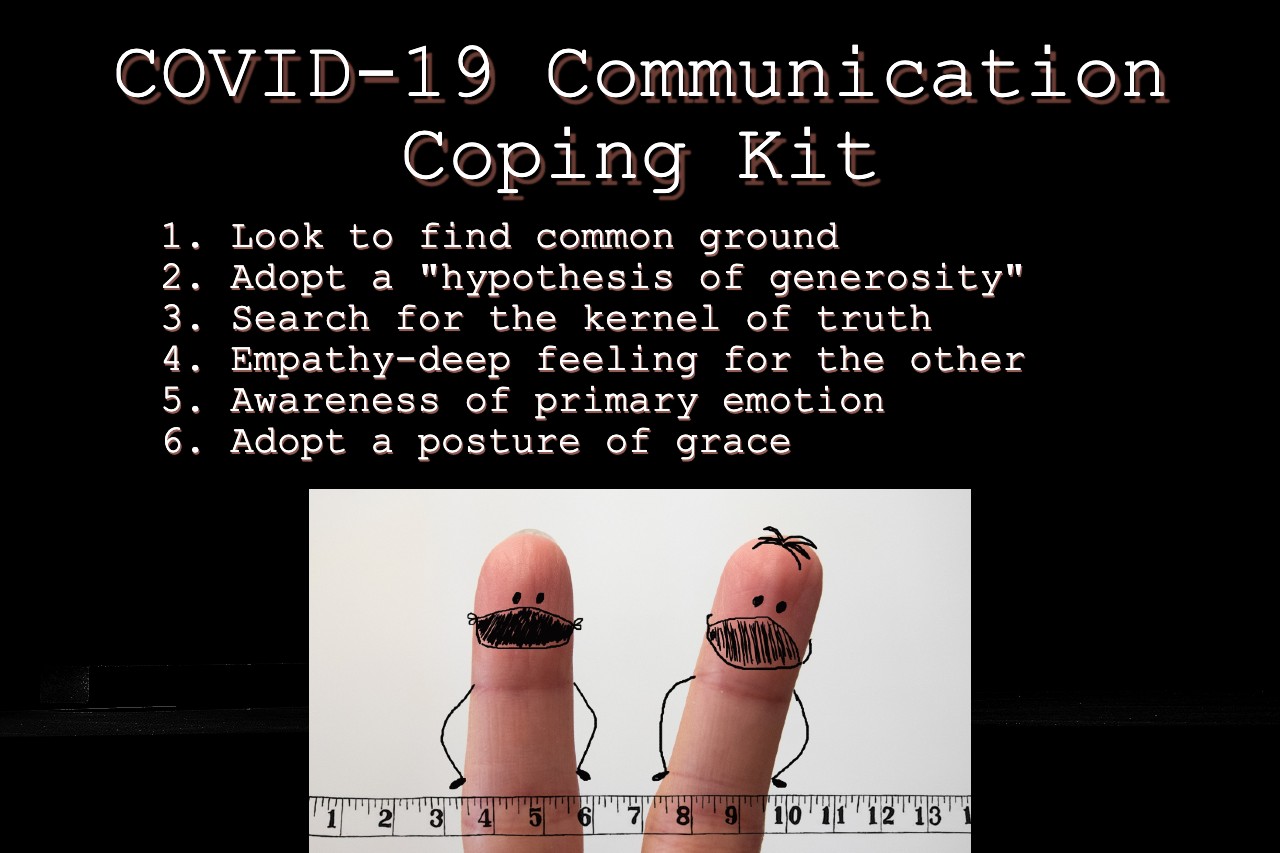
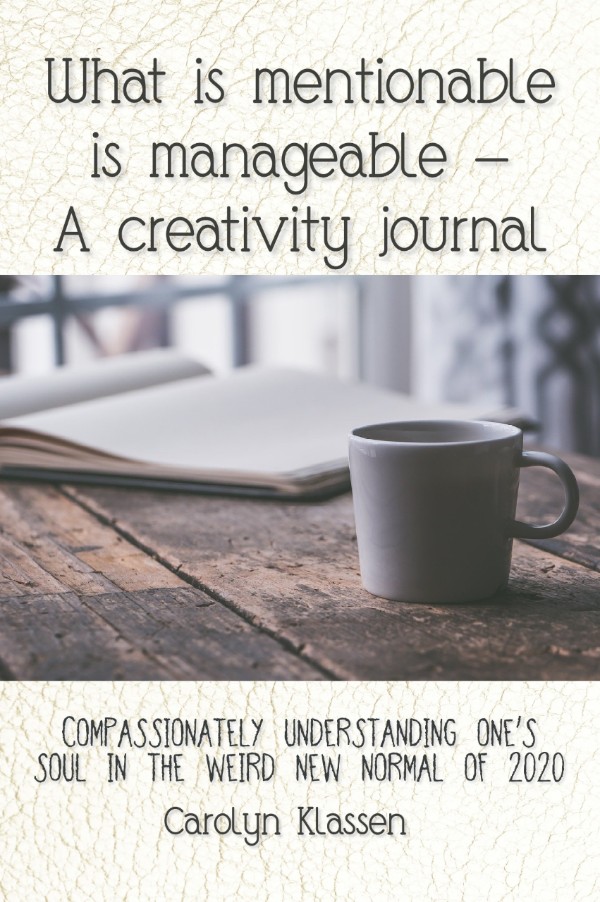





Write a Comment